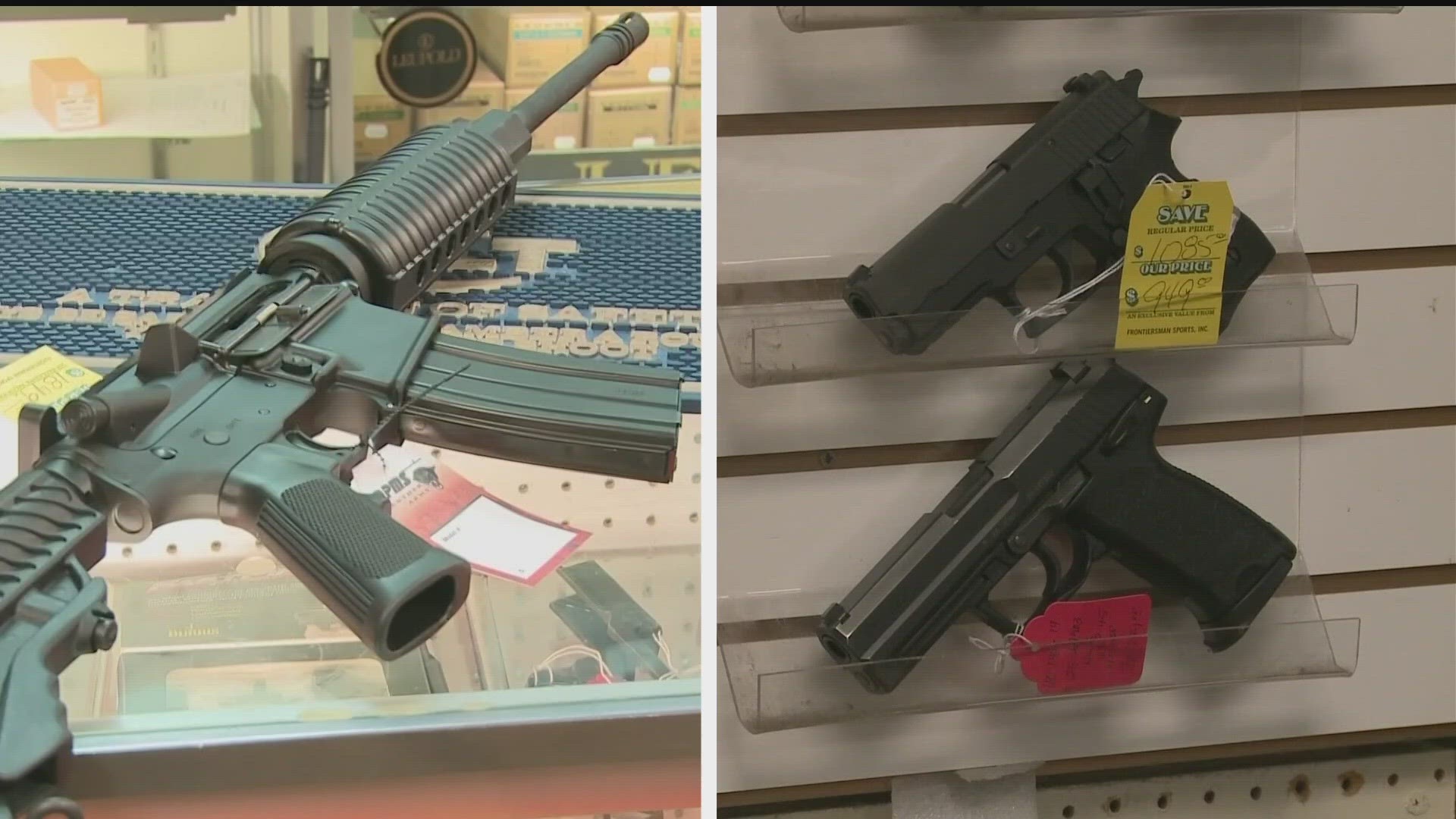ST PAUL, Minn. — For Minnesota's gun control supporters, the Tennessee school shooting was only the latest reminder of the urgency of their cause. Gun control opponents, on the other hand, found nothing in the Covenant School attack that would change the dynamics of the ongoing debate here.
In the House and the Senate the universal background checks bill and the extreme risk protection order bill, also known as the "red flags law," are still moving through the committee process.
In the House, those two gun measures have also been added to the main Public Safety Finance and Policy Omnibus bill, which is the catch-all package incorporating a variety of smaller pieces of legislation. Lawmakers who vote against that bill because of the gun control provisions would simultaneously be voting against things they agree with, including funding for law enforcement.
"The point is we need to do more to keep guns out of the hands of people who’ve shown themselves to be dangerous," Rep. Dave Pinto, the St. Paul Democrat who has carried the universal background checks bill for years, told KARE.
"We have background checks on many gun sales. We should have them on all gun sales, with reasonable exceptions, a gift to a family member, that kind of thing.
Currently only licensed firearms dealers are required to perform criminal background checks on buyers. Pinto's legislation would expand background checks to all private transactions involving handguns and semi-automatic assault-style rifles.
The seller would have to get a background check on anyone who wants to buy or borrow a handgun or assault rifle from them. The seller would be required to hold onto that background check for 10 years in case law enforcement at some future date needs proof the gun was sold legally.
The Minnesota Gun Owners Caucus opposes Pinto's bill because of the added burdens on private guns owners selling their firearms.
"It affects all transfers -- if I was going to loan you a firearm to go hunting for the weekend that’s a transfer," Rob Doar, the organization's lead lobbyist at the Capitol, told KARE.
"And we’d have to really go through this onerous process. They’d keep paperwork for 10 to 20 years depending on which bill you’re looking at, and if we don’t produce that piece of paper, we’re guilty of a crime."
The other major piece of legislation pending at the Capitol is the extreme risk protection order, also known as the "red flags" law. If it were to become law, police or family members could petition a judge for an emergency order allowing law enforcement to temporarily take a firearm from a person deemed to be a threat to themselves or others.
"If somebody has demonstrated to police, to family members they’re a significant danger to themselves or others, police, family members should be able to go to court and have the court review the evidence and possibly issue an order saying temporarily the person should not be around guns," Pinto explained.
Opponents complain the proposed law doesn't give gun owners enough rights to defend their firearms in the midst of that emergency.
"They can request a hearing, but it’s a civil process," Doar explained. "So, they actually have to hire their own attorney to go back and sue to get their own firearms back."
After the Covenant School attack in Nashville, Gov. Tim Walz ordered flags at half-staff in memory of the three children and three staff members killed. He also took to social media to say that this will be the year common sense gun control measures are enacted here in Minnesota.
Universal background checks and "red flags" have passed the DFL-controlled Minnesota House in the past but couldn't get any traction in the Senate, which had been controlled by Republicans the past eight sessions. Democrat regained control of the Senate for 2023 but hold only a one seat majority.
"There are close margins in both bodies, but certainly better prospects are now in place," Pinto remarked.
Two other gun bills in committee in the House haven't made it as far in the Senate.
House File 396 would require all firearms to be stored separately from ammunition and locked up, to prevent children from gaining access to a loaded gun. And House File 601 creates a duty for gun owners to report lost and stolen firearms to police with 48 hours of discovering the loss.
Gun control opponents maintain that none of the circumstances surrounding the Nashville shooting rampage, which claimed the lives of three children and three staff, would've been affected by the two proposals being debated here in Minnesota.
"It just goes to show the importance of mental health and intervention," Doar remarked.
"As with most mass shootings the person wasn’t prohibited from possessing a firearm. We don’t know for a fact, but it’s probably likely they acquired their firearms legally."
According to published reports, the Nashville shooter bought seven firearms legally from five different stores in the month leading up to Monday's attack.
That hasn't changed the determination of proponents.
"Other countries do not go through this. And our country does. And, of course, it’s horrifying, and it’s tragic," Pinto remarked.
"Minnesotans know this is something our state should not be living with and it's important we not get accustomed to headlines like we woke up to this morning."

